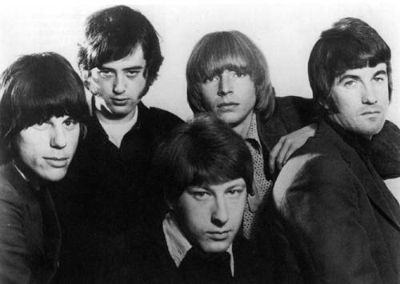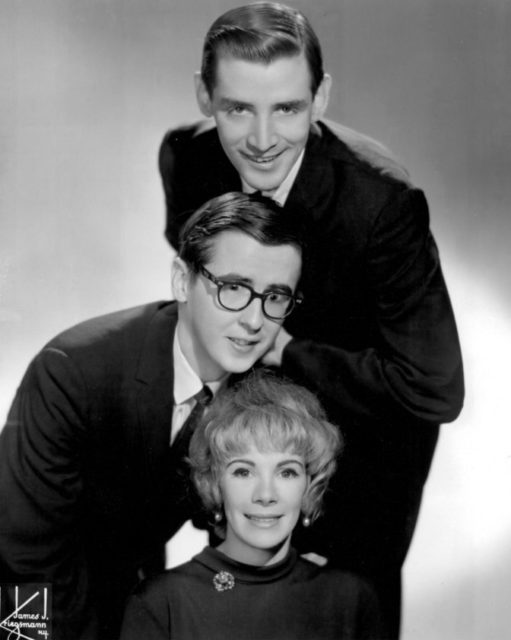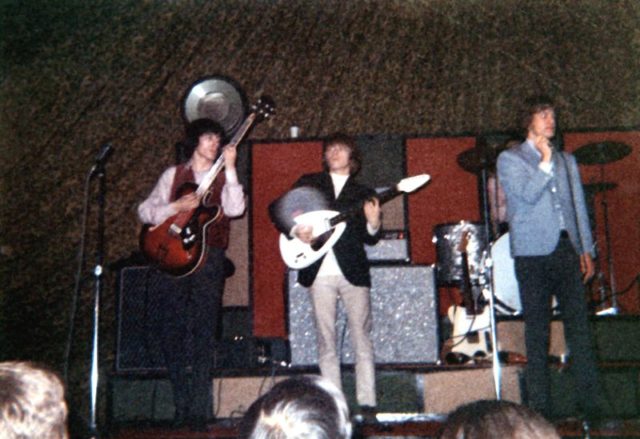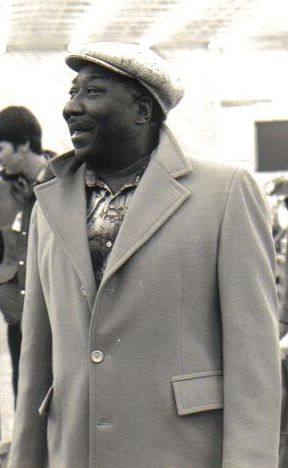In June 2010, folk singer Jake Holmes filed a controversial lawsuit against the band Led Zeppelin, alleging copyright infringement and naming the guitarist Jimmy Page as a co-defendant. Holmes was pursuing Jimmy Page and Led Zepp’s labels for at least $1 million in authorship damages, claiming that the band stole his song “Dazed and Confused,” their psychedelic staple and a favorite of classic rock radio for years.
The lawsuit was “dismissed with prejudice” and settled out of court between Page and Holmes for an undisclosed amount in 2011. Significantly, the Zeppelin live album Celebration Day, released in 2012, credits the song as “written by Page; inspired by Jake Holmes.”
On Holmes’ album The Above Ground Sound the song is a slow, descending, minor-key folk number that Holmes wrote in 1967 and performed constantly throughout his career. Holmes’ lyrics portray a very unstable relationship in which the narrator finds himself in a whirlpool of paranoia and fear about the woman he loves and uncertainty over whether she stays with him or goes. A true psychedelic anthem of the ’60s counterculture era.

In an interview with Will Shade, the folk singer states that he did actually approach Led Zeppelin to discuss the matter a couple of years after the album Led Zeppelin I was released in 1969, but nobody from the band replied to Holmes’ questions. On the album, the song was credited to Jimmy Page, and Holmes did not receive any acknowledgments.
Page first heard the song when he was playing with his former band, the Yardbirds, in Greenwich Village in 1967. Holmes was an opening act for the Yardbirds, and Page was so impressed he bought Holmes’ album.

The Yardbirds rearranged the structure and “Dazed and Confused” became a staple of the band’s live performances, with a lot of added improvisations that sometimes stretched the song to 45 minutes in concert, violin bows on the guitar strings and all. “That was the infamous moment of my life when ‘Dazed and Confused’ fell into the loving arms and hands of Jimmy Page,” Holmes recalled.
Page claimed to be completely unaware that it was Holmes’ song, despite the title, song structure, notes, and lyrics (The Yardbirds’ singer, Keith Relf, rewrote some of the lyrics) being unmistakably the same. Surprisingly, for all those years, Holmes declined to sue, stating: “I said, ‘What the hell, let him have it.’ “

When asked why he waited so long to take legal matters into his own hands, Jake Holmes mentioned the strange case of Procol Harum’s “A Whiter Shade of Pale,” their 1967 hit single. In the same fashion as with “Dazed and Confused,” it took a long time for legal battles to commence. That case was settled in 2009 in favor of Procol Harum organist Matthew Fisher after legal fights involving complicated copyright-sharing.
Additionally, the Yardbirds did their fair share of proper accreditation, here and there, fair and square. As for Led Zeppelin, the legendary rock & roll act has been under heavy fire of late, attacked for alleged plagiarism.

Allegations about the controversial musical thefts kept surfacing over the years, thanks to the Internet and a bit of research. There’s not question that the band has a pretty long history of “borrowing” songs from acclaimed blues musicians.
The 1960s were like that. Of course, popular songs meant respectful nods and tributes from other bands, but when it came to crediting the source, it was not much of a big deal.
It’s known to many that a large portion of Led Zeppelin’s songs are directly inspired by Delta blues folk classics, as well as traditional folk songs. Although sometimes it goes a little further than that.

Sure, the Rolling Stones got away with Robert Johnson’s “Love in Vain,” and the Beatles played it safely while still nicking some chords from Chuck Berry. But some bands didn’t care much.
Names like Willie Dixon, Anne Bredon, Muddy Waters, Howlin’ Wolf, Bert Jansch, and Moby Grape, are all alleged victims of Led Zepp’s “musical appropriation.” Page did a good job of rearranging the structures, but it seems Plant didn’t have the heart to change the lyrics.

In 1990, Musician magazine asked Page about the origins of “Dazed and Confused” and directly asked if Holmes was the original composer. “I don’t know about all that,” Page replied with a shrug. “I’d rather not get into it because I don’t know all the circumstances. What’s he got – the riff or whatever? … I haven’t heard Jake Holmes so I don’t know what it’s all about anyway. Usually, my riffs are pretty damn original.”
Mick Wall quotes Jake Holmes as saying that he just wanted “a fair deal. I don’t want [Page] to give me full credit for this song. He took it and put it in a direction that I never would have taken it, and it became very successful. So why should I complain? But give me at least half credit on it.”
After the case was settled, Holmes may not have gotten what he deserved, with a mere “inspired by Jake Holmes.” Led Zeppelin undoubtedly owes a greater debt to him, judging by the song’s influence on the culture.
“Dazed and Confused” went on to become one of the band’s signature performances, as well as a staple of a wild era. It is so much identified with the 1970s that a popular coming of age film that goes by the same name was inspired by the song title and followed a high school class during one day in 1976.
